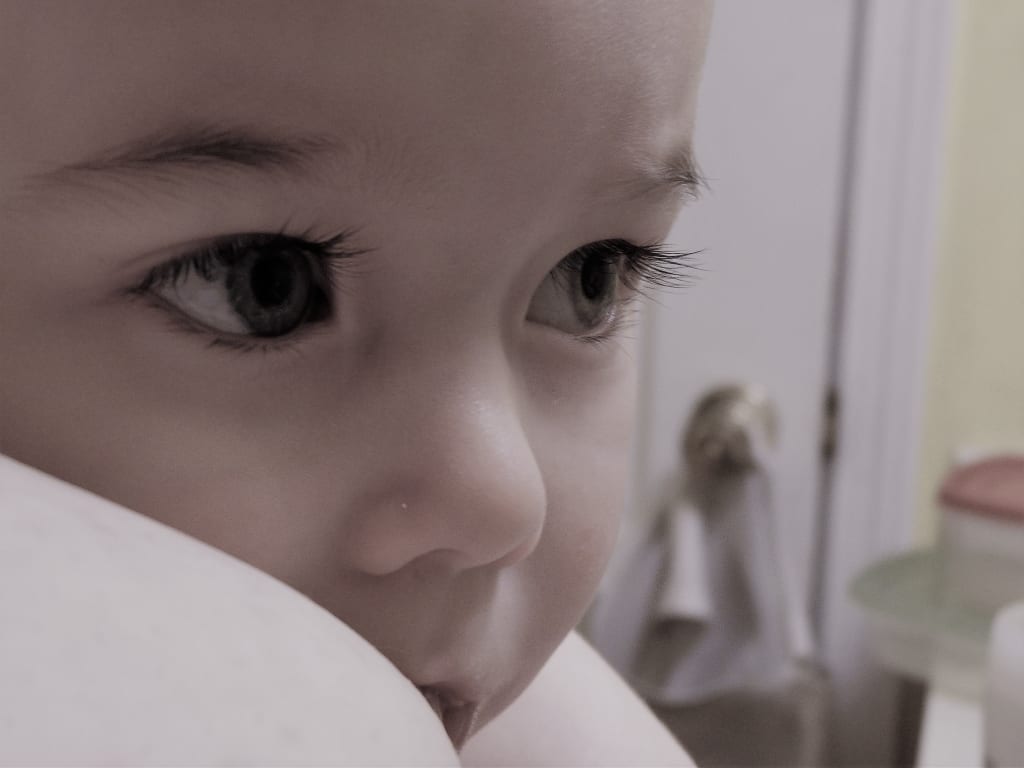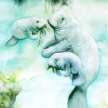When To Stop Breastfeeding
Will it Ever End? The Long-Term Breastfeeding Relationship

And breastfeeding is wonderful. Women are incredibly fortunate to have the ability to feed their young. It truly is a super power we share with other mammals. Just imagine having to run out and find worms to mash up and spit into the mouth of a crying child like birds have to suffer through, or worse have to leave your kids to fend for themselves the moment they're born, like amphibians and reptiles. If you look from that perspective, mammals are incredibly fortunate. Our baby's nutrient supply is produced in-house, on demand, 24-7. It does not get better than that.
Once you've mastered the art of breastfeeding and have made it a routine for awhile, the articles to read looking for common experiences start to dry up. Not many women seem to be interested in breastfeeding their baby beyond 6 months, and even fewer beyond 12. Our American culture is mainly to blame. The expectation to nurse your child long-term just does not exist in the United States. Also, our corporate culture is completely obsessed with making money and getting ahead, and this outlook is not compatible with staying at home to care for a young child. If you have to get back to work in six weeks after giving birth or otherwise your young family faces eviction and a dark future, attempting to keep up a breastfeeding relationship which can feel futile.
Life does not have to be this way. For moms that have found a way to make it work despite everything and have made it past the 12-month mark, they should be celebrated and feel exceedingly grateful to have that magic liquid still pumping. When you are a mom just doing the best you can with what you have, breast milk is a lifesaver. For some moms, breast milk and the act of breastfeeding epitomizes motherhood. Baby's hungry? Breast milk! Baby's tired? Time to nurse! Baby's sick? Cuddles and breast milk all day long! Breast milk is the go-to answer-all for motherhood and caring for your baby. Why would any mother willingly give that up once they've experienced this awesome power only mothers can possess?
Speaking from the perspective of someone who has indeed tried and failed at breastfeeding once, but on the second go-round realized what went wrong and fixed it, a huge part of me never wants to give up breastfeeding my toddler. She will be three in a handful of short months. Three years has become my personal goal, but I am willing to push the deadline if she's not ready yet.
On the other hand, what am I thinking? Don't I ever want to sleep again? Constant waking up to nurse throughout the night wakes me up, too. I find it harder to fall asleep at night while she's nursing now and often wait until she's done, unlike the old days when I was too exhausted to care. Don't I want to try getting her to sleep in her own bed? Don't I want to stay up late again without the toddler stalking me? Sleep is our master, and if we don't listen to our bodies and obey, life can be more stressful than it needs to be. Plus, even beyond the sleep issue, toddlers are very demanding! They don't care where you are or what you're doing. When they want something - breast milk included - they want it now! Not in five minutes, or even five more nanoseconds. They are big enough to pull your shirt up and help themselves. Which can make for some mortifying moments if you're not sitting in the comfort of your own couch when this happens.
Many people point to episodes of toddlers helping themselves or literally asking for milk as reasons they're too old to nurse. This is illogical. The ability to tell mom they're hungry or thirsty has no logical connection to arguing a toddler should no longer need or should no longer have access to their most primary nutrient source. The reason for this conclusion jump is simple enough to understand though: people equate breastfeeding to babies and people do not equate babies with beings that can tell you what they want when they want it. Babies are defenseless, toothless, speechless beings we have to proactively care for because they can't tell us what they need, and breastfeeding is the most intuitive way to fulfill all of the needs a baby can have. Toddlers have bodies that can be cared for in other ways: they can eat table food because they have teeth and more developed digestive systems, they tell us when they're hungry, they can tell us when they're tired, and they can be calmed by songs and stories. For some, these are reasons enough to stop breastfeeding a toddler.
The benefits of breastfeeding a toddler, though! As a reminder, I want to enforce the understanding that this article is personal opinion, but innumerable wonderful reasons exist to keep up the nursing relationship for as long as possible. I won't go into anything too technical because I'm not a scientist or medical authority of any variety, but I can relay my own personal experiences. I encourage every person interested in or affected by a breastfeeding relationship with a toddler to research the subject diligently. For starters, I have noticed between my two daughters, one who has been and continues to be breastfed and one who I gave up breastfeeding within her first month of life (she's now 8 years old), is the breastfed one appears to me to be growing stronger and taller at a faster rate. Additionally, the breastfed child rarely gets sick. When she does get sick the illness is not serious, she recovers quickly, and she is easily comforted by her "Mama Milk". When my two daughters get sick with the same illness, my older daughter often suffers from higher fevers and longer-term illness than the younger breastfed child. My older daughter had several ear infections before she turned a year old, as did my husband and I when we were infants. The breastfed child has never had an ear infection. Cuts heal lightning-quick, bruises are practically none existent, and eye infections are cured almost miraculously (yes I have tried it and it worked for us; three drops of breast milk three times a day directly into the affected eye cleared up pink eye for my little one within a week; saw immediate improvement within the day of the first dose). I will readily extol all the benefits of breastfeeding and breast milk simply because I have experienced first-hand how amazing breast milk is, benefits I never imagined existed before I had my first daughter.
Illness and fear of illness is one issue constantly on the mind of parents and is the center of many decision we make for our children. I remind myself how little I have to fear for my younger child as long as she is breastfed whenever I lament my lack of freedom or bed space. Every decision we make in life, parent or not, is a trade-off for something else. I can forfeit sleep for a relatively short time in my life to soothe my little one and comfort her in the easiest way possible.
Admittedly, no, toddlers do not NEED their mother's breast milk like babies need it. They can and do get their nutrients from other sources. And that's a point many people do not understand. The process of weaning - that is, the process of stopping breastfeeding - is a slow one. Any child you see breastfeeding over the age of a year is actually in the process of weaning. It's a painfully slow process, but needfully. Abruptly stopping breastfeeding is shocking to a mother's body and can lead to problems. For a child, it can be traumatic to breastfeed one day and the next not be able to. Ideally, the length of time it takes to wean, which varies widely, will soften the emotional blow so when that last nursing session does end, neither the mother nor the child will feel remorse.
I know my nursing toddler will not always be my nursing toddler. Our breastfeeding relationship will assuredly end one day and my mommy super powers will be greatly diminished, but that day is not today. For now, I can use my powers to build my daughter into a strong, growing girl that will eventually lead to a strong and empowered woman.
About the Creator
Meghan Gattignolo
I am a mother of two bright little girls. I love to write and I have a Bachelor of Arts degree in History. I work as a receptionist and history-nerd at my local museum.






Comments
There are no comments for this story
Be the first to respond and start the conversation.